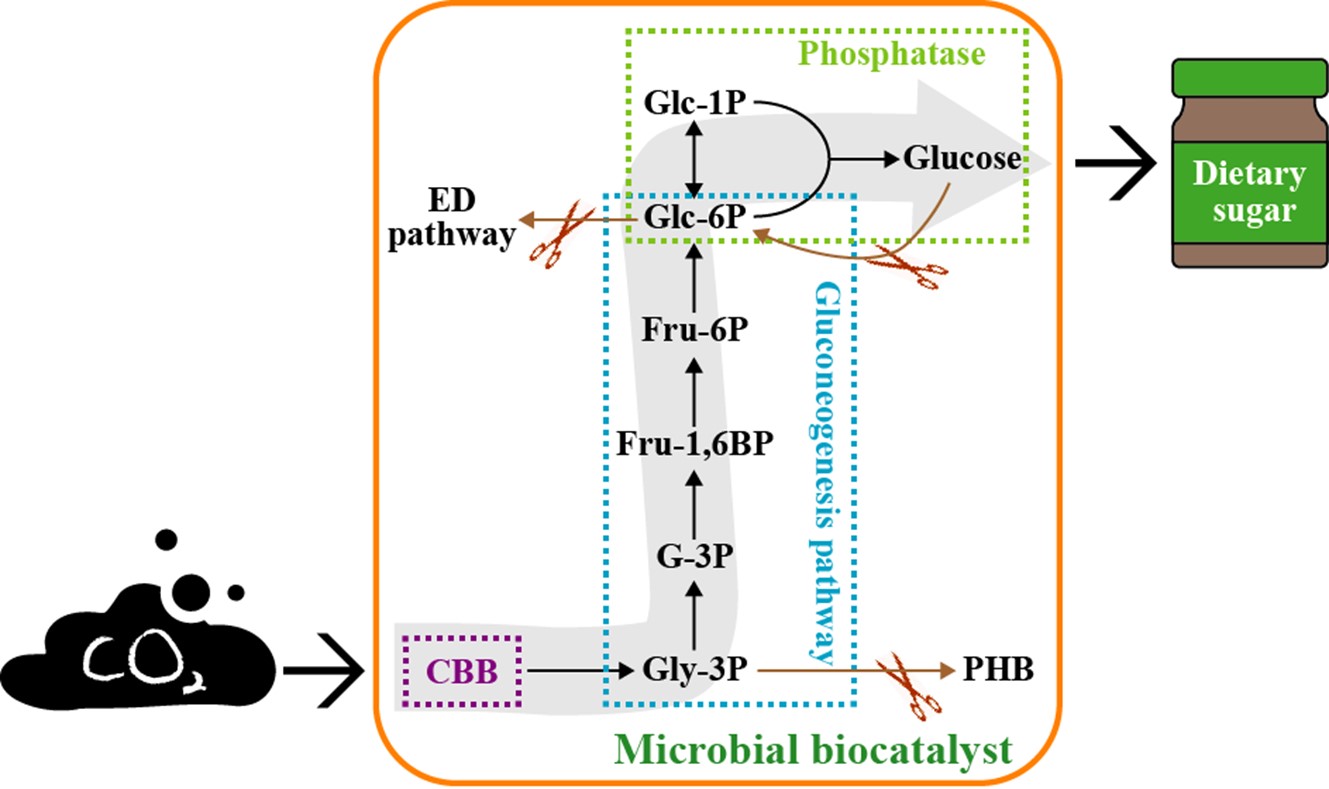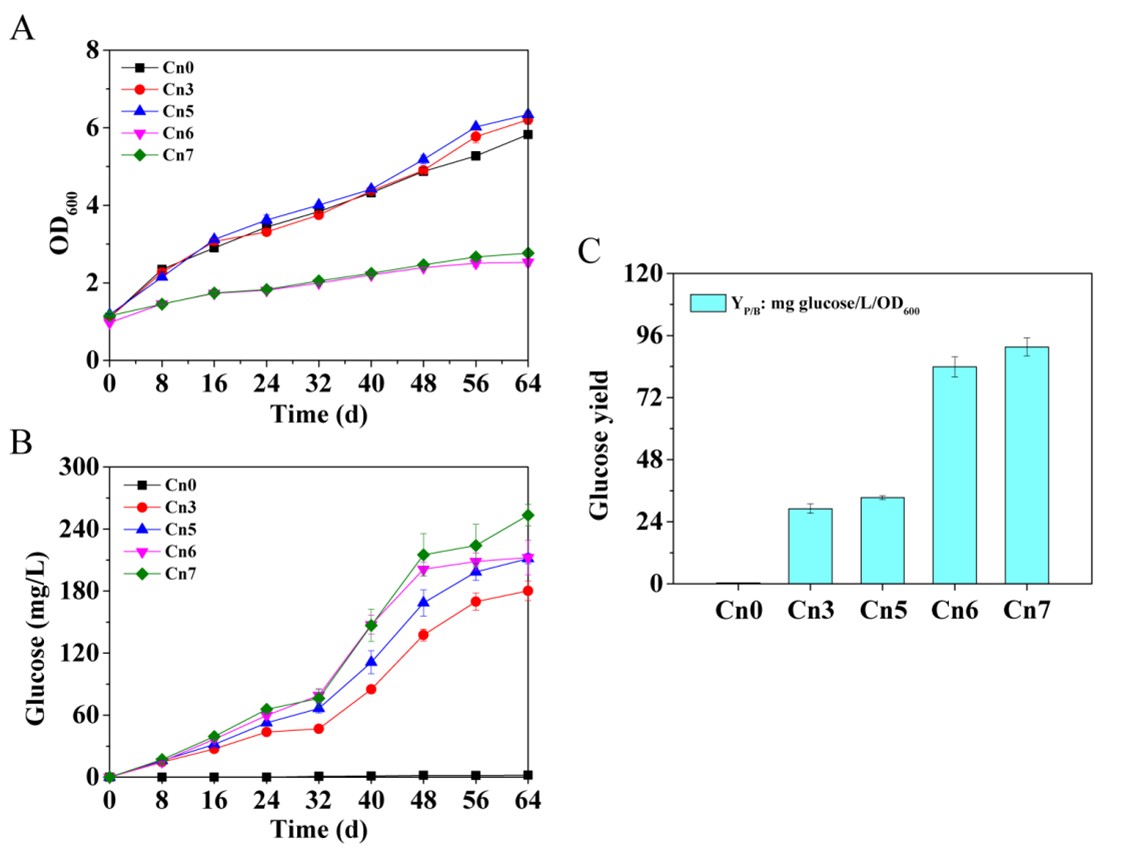
The climate change which is caused by the increases in concentrations of atmospheric greenhouse gases, particularly carbon dioxide (CO2), is challenging plant productivity and threatening future food supply across the globe. In this context, emerging technologies aiming to artificially recycle CO2 into food or animal feed related bioproducts are urgently needed to achieve environmental and agricultural sustainability.
Recently, researchers from Feed Enzyme Engineering Innovation Research Team of the Institute of Animal Science, Chinese Academy of Agricultural Sciences (IAS, CAAS) have reported the production of glucose from CO2 directly using metabolically engineered C. necator H16. This paper has been published online in Bioresource Technology.
According to Professor Jie Zhang, the corresponding author of this paper, artificial conversion of CO2 to glucose could revolutionize traditional farm-based agriculture and promote the cyclical bioeconomy, while minimizing carbon footprint and conserving more agricultural land and fresh water. Chemical-biochemical and electrochemical-biological hybrid approaches have been proposed to upcycle CO2 into starch and glucose. However, the complex reaction systems and expensive enzyme catalysts which were used in those approaches hindered the large-scale industrial application of those approaches.
In this study, a highly integrated biosystem that could convert CO2 to glucose directly using metabolically engineered C. necator strains was developed. Results showed that glucokinase, which catalyzes the phosphorylation of glucose, played a crucial role in glucose production of C. necator from CO2. Disruption of Entner-Doudoroff pathway which is the central route for carbohydrates metabolism and PHB biosynthesis pathway which is responsible for main end-product synthesis in C. necator further increased the glucose accumulation. Furthermore, the role of seven endogenous alkaline phosphatases and haloacid dehalogenase-like (HAD) phosphatases in dephosphorylation of phosphorylated glucose in C. necator was identified. This work demonstrates that artificial synthesis of glucose, the basic material of food and feed, from CO2 could be achieved in a concise way which is independent of light and electrochemical reactions, thus opening up the possibility of the next agricultural revolution driven by microbial-based metabolic engineering. This work also further expanded the application of the C. necator as a potential game-changer for global warming and food shortage problems.
Professor Jie Zhang is the corresponding author of this paper, and Dr. Xiaolu Wang is the first author. The research was supported by the National Key Research and Development Program of China (2021YFD1301001), the National Natural Science Foundation of China (32172767), the China Agriculture Research System of MOF and MARA (CARS-41), the State Key Laboratory of Animal Nutrition Project (2004DA125184G2101) and the Central Public-interest Scientific Institution Basal Research Fund (2022-YWF-ZYSQ-05).


More details are available at the link below: https://doi.org/10.1016/j.biortech.2022.127806

